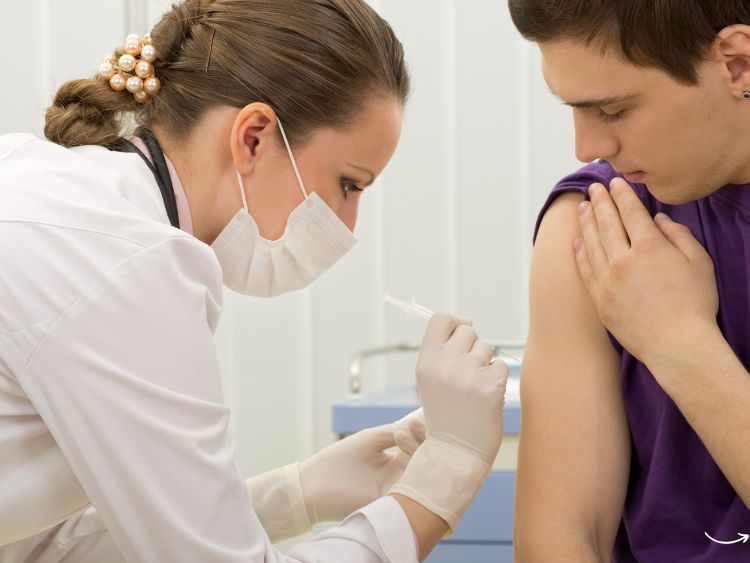Have you ever heard about leptospirosis? No? Well, let me tell you, it’s one of those diseases you don’t want to mess with. But here’s the good news – you can protect yourself with a simple leptospirosis vaccination. This article dives deep into what leptospirosis is, why the vaccination is essential, and how it can save you from a world of trouble. So, buckle up and let’s explore this critical topic.
What is Leptospirosis?
Leptospirosis is a bacterial infection caused by the Leptospira bacteria. This disease can affect both humans and animals, causing a wide range of symptoms. In severe cases, it can lead to serious health issues like kidney damage, liver failure, meningitis, and even death. The bacteria thrive in warm, wet environments and are commonly found in water or soil contaminated with urine from infected animals.
Symptoms of Leptospirosis
Leptospirosis can be tricky to diagnose because its symptoms often resemble those of other diseases. Here are some common symptoms to watch out for:
- High fever
- Headache
- Chills
- Muscle aches
- Vomiting
- Jaundice (yellow skin and eyes)
- Red eyes
- Abdominal pain
- Diarrhea
- Rash
If left untreated, leptospirosis can lead to severe complications. That’s why early diagnosis and treatment are crucial.
How Does Leptospirosis Spread?
Leptospirosis is primarily spread through contact with water or soil contaminated with the urine of infected animals. Common carriers include rodents, cattle, pigs, and dogs. People can get infected through:
- Direct contact with contaminated water or soil
- Drinking contaminated water
- Contact with contaminated food
- Exposure to the urine or tissues of infected animals
Farmers, veterinarians, sewer workers, and those involved in outdoor activities like swimming, kayaking, or hiking are at a higher risk of contracting leptospirosis.
Leptospirosis Vaccination: Your Best Defense
Now, let’s talk about the star of the show – the leptospirosis vaccination. This vaccine is a powerful tool in preventing the disease. It works by stimulating the immune system to produce antibodies against the Leptospira bacteria, providing protection against infection.
Who Should Get Vaccinated?
The leptospirosis vaccination is particularly recommended for:
- People working in high-risk occupations (e.g., farmers, veterinarians, sewer workers)
- Travelers to areas where leptospirosis is common
- Individuals participating in outdoor recreational activities in areas with known outbreaks
- Pet owners, especially those with dogs
Types of Leptospirosis Vaccines
There are different types of leptospirosis vaccines available for humans and animals. For humans, the vaccine is usually given in two doses, a few weeks apart, followed by annual boosters if the risk of exposure continues.
For dogs, there are several vaccines available that protect against the most common serovars (types) of Leptospira bacteria. Regular vaccination of pets is crucial to prevent them from becoming carriers and spreading the disease to humans.
The Importance of Leptospirosis Vaccination
You might be wondering, why is leptospirosis vaccination so important? Well, here are a few compelling reasons:
Prevents Severe Illness
Vaccination significantly reduces the risk of severe illness and complications associated with leptospirosis. By building immunity, the vaccine helps your body fight off the bacteria more effectively.
Protects High-Risk Groups
For people in high-risk occupations or those engaging in activities that increase their exposure to contaminated environments, vaccination is a lifesaver. It provides an extra layer of protection against this potentially deadly disease.
Reduces Disease Spread
Vaccinating pets, especially dogs, helps control the spread of leptospirosis. By preventing pets from becoming carriers, we can reduce the risk of human infection.
Peace of Mind
Knowing you’re vaccinated can give you peace of mind, especially if you live in or travel to areas where leptospirosis is prevalent. It allows you to enjoy your activities without constantly worrying about getting sick.
FAQs About Leptospirosis Vaccination
Is the leptospirosis vaccine safe?
Yes, the leptospirosis vaccine is generally safe. Like all vaccines, it may cause mild side effects like soreness at the injection site, mild fever, or fatigue. Serious side effects are rare.
How effective is the leptospirosis vaccine?
The vaccine is highly effective in preventing leptospirosis. However, it may not provide 100% protection, so it’s still important to take precautions to avoid exposure to contaminated water and soil.
How long does the leptospirosis vaccine last?
The initial vaccine series provides protection for about one year. Annual boosters are recommended for continued protection.
Can my dog get vaccinated for leptospirosis?
Absolutely! Vaccinating your dog is highly recommended, especially if they spend time outdoors or in areas where leptospirosis is common. Consult your veterinarian for the best vaccination schedule for your pet.
What should I do if I suspect I have leptospirosis?
If you suspect you have leptospirosis, seek medical attention immediately. Early diagnosis and treatment with antibiotics are crucial for a full recovery.
Summary
Leptospirosis is a serious disease that can have devastating effects on both humans and animals. Fortunately, leptospirosis vaccination offers a powerful defense against this infection. By getting vaccinated, you can protect yourself, your loved ones, and your pets from this potentially life-threatening disease.
Remember, the leptospirosis vaccination is especially important for those in high-risk occupations, travelers to endemic areas, and pet owners. Stay safe, stay informed, and consider getting vaccinated to keep leptospirosis at bay.
Authoritative Links
For more information on leptospirosis and vaccination, check out these resources:
- CDC Leptospirosis Information: https://www.cdc.gov/leptospirosis
- WHO Leptospirosis Overview: https://www.who.int/health-topics/leptospirosis
- American Veterinary Medical Association on Leptospirosis: https://www.avma.org/resources-tools/pet-owners/petcare/leptospirosis
Getting vaccinated is a small step that can make a big difference in preventing leptospirosis. Don’t wait – talk to your healthcare provider or veterinarian about leptospirosis vaccination today!
